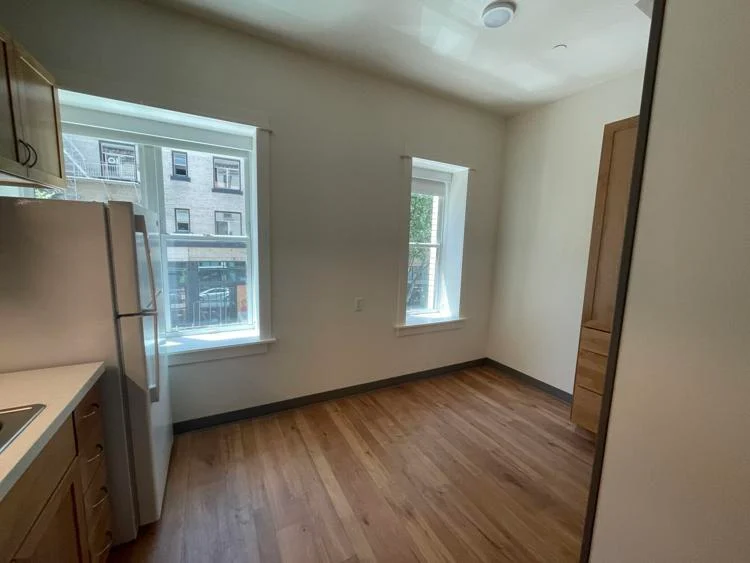
The Joyce, a former flophouse in downtown Portland, has reopened as a 66-unit low-income housing structure.
“It's so exciting to know that soon 66 people who've been living outside will be living their lives inside this building. And we are so very ready to welcome them,” Rachael Duke, executive director of Community Partners for Affordable Housing, said on Tuesday, June 5.
Tenants will start moving in toward the end of June, Duke said.
Portland purchased the rundown motel in 2016 after the former owner evicted all the tenants, who paid as little as $19 a night in shared rooms.
The apartment building will now offer tenants “not just a place to stay for the night, but the type of services that high-need populations need in order to remain healthy and stably housed, including care coordination, crisis intervention, housing stabilization support and wellness activities,” Portland Housing Bureau interim director Molly Rogers said.
Those services will be funded by the voter-approved Metro Supportive Housing Services measure, Multnomah County Chair Jessica Vega Pederson said.
Each of the 66 studio units has a kitchen, but bathrooms are shared.
Each unit has a project-based Section 8 voucher, meaning that tenants will pay around 30% of their income and the U.S. Department of Housing and Urban Development, through Home Forward, will pay the rest.
Community Partners for Affordable Housing will have a resident services coordinator on site, though Pinehurst property management will handle day-to-day operations. Cascadia Health, the Native American Rehabilitation Association and the Cascade AIDS Project will provide case management services to different populations in the building.
The 100-year-old building at the intersection of Southwest 11th Avenue and Harvey Milk Street “has also stood for decades at the center of LGBTQ+ culture in Portland,” Portland City Commissioner Carmen Rubio said. It was built in 1912, matching the buildings at each corner on the intersection.
“During much of its history, the Joyce has served as a kind of transitional or what people have called ‘in-between’ housing,” Duke said. The stories of the Joyce’s former tenants “speak of resilience and survival just like the Joyce itself,” Duke added.
Before it closed in 2016, the Joyce was "a place where landlords would accept IOUs from residents who were waiting on state assistance, but didn't have access to their money, and where no one would check your criminal or rental history," Rogers said. The cheap nightly rent made it accessible to low-income Portlanders who couldn't manage a month payment up front or lacked the stability to get a typical 12-month lease. But at $40 per night for a private room, the $1200 monthly cost was relatively high for the time — particularly for, as Rogers described it, "little more than a motel-style flophouse in desperate need of health and safety repairs."
The building was vacant for years before construction began in 2022. Speakers at the building’s grand opening said the Portland Housing Bond was crucial in completing the project, though the bond only paid for just over $800,000 of the $21 million to renovate the building. A state ballot measure in 2018 amended the constitution to allow for the use of bond funds in affordable housing projects even if the government didn’t retain ownership of the building. That measure allowed the city to leverage more funding for the project, on top of $7.2 million the Portland Housing Bureau contributed.
The city purchased the building in 2016, months after most tenants were evicted, for $4.2 million, but transferred ownership to Community Partners for Affordable Housing.
Between the property cost and the millions in renovations, the cost per unit is roughly $383,500.
Originally published by the Portland Tribune, this article can be read here. It is used with permission of the Pamplin Media Group. Read more from Oregon’s largest source of independent local news at pamplinmedia.com.
